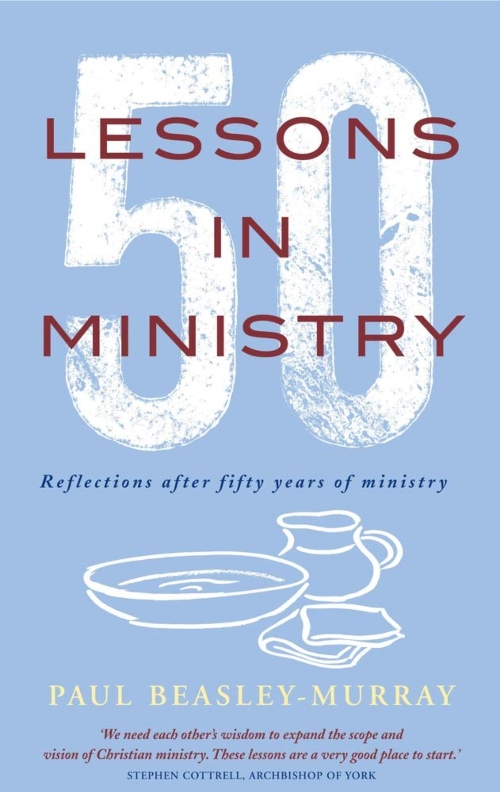50 Lessons in Ministry: Reflections on fifty years of ministry by Paul Beasley-Murray
Many in ministry will find this thought-provoking compendium of the lessons the author has learned over the years useful
 50 Lessons in Ministry: Reflections on fifty years of ministry
50 Lessons in Ministry: Reflections on fifty years of ministry
By Paul Beasley-Murray
Darton, Longman & Todd
ISBN 978-0-232-53468-9 (print), 978-0-232-53469-6 (eBook).
Reviewed by Andrew Kleissner
Paul Beasley-Murray has spent a lifetime in ministry. Following service with the Baptist Missionary Society in Africa, he held two lengthy pastorates and served – unhappily – as Principal of Spurgeon’s College (in fact at the time when I was studying there). He has written prolifically and travelled widely. Now retired and still retaining his Baptist roots, he has joined the congregation of Chelmsford Cathedral. This book is a compendium of the many lessons he has learned over the years, and advice which he wishes to pass on.
He covers a wide variety of topics, from personal ones such as the minister’s sense of call and day-to-day spirituality, to potentially contentious matters such as the best way of preparing public prayers (and notices!) and whether churches should be so obsessed with their buildings. He engages with pastoral concerns, such as the “multifaceted” needs of those who attend funeral services or the more mundane problem of trying to remember the names of every member of a congregation. He speaks of the need for ministers to be “professional”, which may involve copious reading, development and appraisal, or simply taking the time needed to carefully “curate” worship. And he writes movingly of the challenges posed by retirement. These are but a few of the subjects discussed in 50 brief chapters.
Paul is not afraid of being forthright! He extols the virtues of pastoral visiting and, by implication, is critical of ministers who expect members of the congregation to come to them – though I suspect that few will wish to follow his example of visiting late into the evening! He feels that Holy Communion has become trivialised and declares that he has “lost track of the number of startup evangelical churches whose practice of Communion is frankly a sacrilege”.
He commends lengthy pastorates, in which early years of testing and difficulty may lead to long-term church growth. He is critical of the way in which a “worship group” often leads much of a service in a very predictable way, leaving the minister with little to do except preach. And he believes that Christians are often naïve in their belief that churches are not subject to the conflicts and power games so prevalent in human organisations.
Paul comes over as a highly-disciplined and energetic man with a strong work ethic. His comments may therefore raise hackles among those who are more “laid-back” in their approach to life. More to the point, one feels that his ministry has been in larger churches which have been well-resourced in terms of both finance and people; those who serve, possibly on a part-time basis, in smaller congregations which struggle merely to “keep the roof on” may find his remarks to be unattainable counsels of excellence. Nevertheless this is a book which many in ministry will find useful to dip in and out of: its thought-provoking and occasionally infuriating comments are worthy of consideration and should not be ignored.
Andrew Kleissner is the Minister of Christchurch United Church, Llanedeyrn, Cardiff. He has previously served churches in Ipswich and both West and North London, following missionary service in West Africa
Baptist Times, 07/05/2021